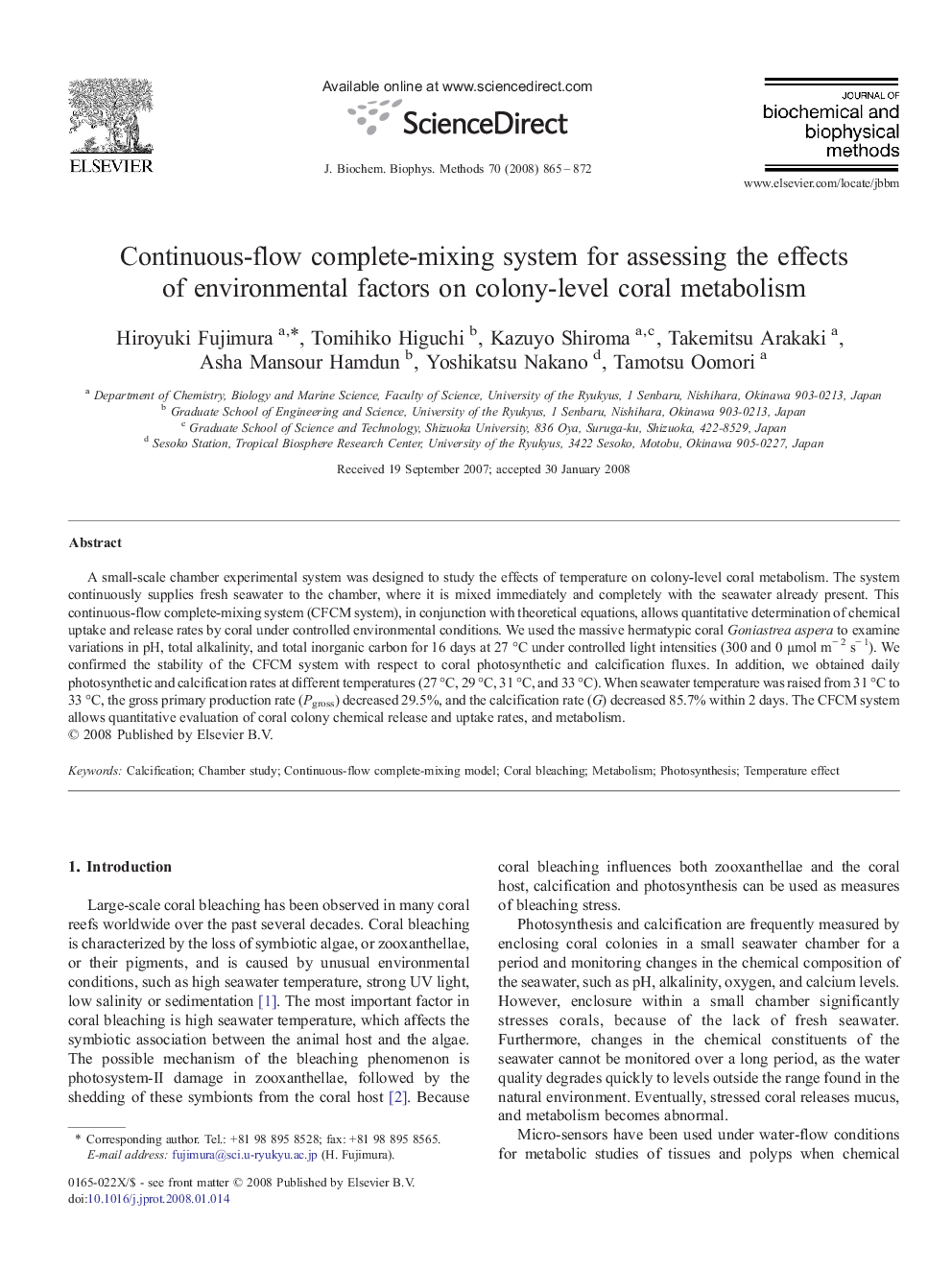| Article ID | Journal | Published Year | Pages | File Type |
|---|---|---|---|---|
| 1988361 | Journal of Biochemical and Biophysical Methods | 2008 | 8 Pages |
A small-scale chamber experimental system was designed to study the effects of temperature on colony-level coral metabolism. The system continuously supplies fresh seawater to the chamber, where it is mixed immediately and completely with the seawater already present. This continuous-flow complete-mixing system (CFCM system), in conjunction with theoretical equations, allows quantitative determination of chemical uptake and release rates by coral under controlled environmental conditions. We used the massive hermatypic coral Goniastrea aspera to examine variations in pH, total alkalinity, and total inorganic carbon for 16 days at 27 °C under controlled light intensities (300 and 0 µmol m− 2 s− 1). We confirmed the stability of the CFCM system with respect to coral photosynthetic and calcification fluxes. In addition, we obtained daily photosynthetic and calcification rates at different temperatures (27 °C, 29 °C, 31 °C, and 33 °C). When seawater temperature was raised from 31 °C to 33 °C, the gross primary production rate (Pgross) decreased 29.5%, and the calcification rate (G) decreased 85.7% within 2 days. The CFCM system allows quantitative evaluation of coral colony chemical release and uptake rates, and metabolism.
